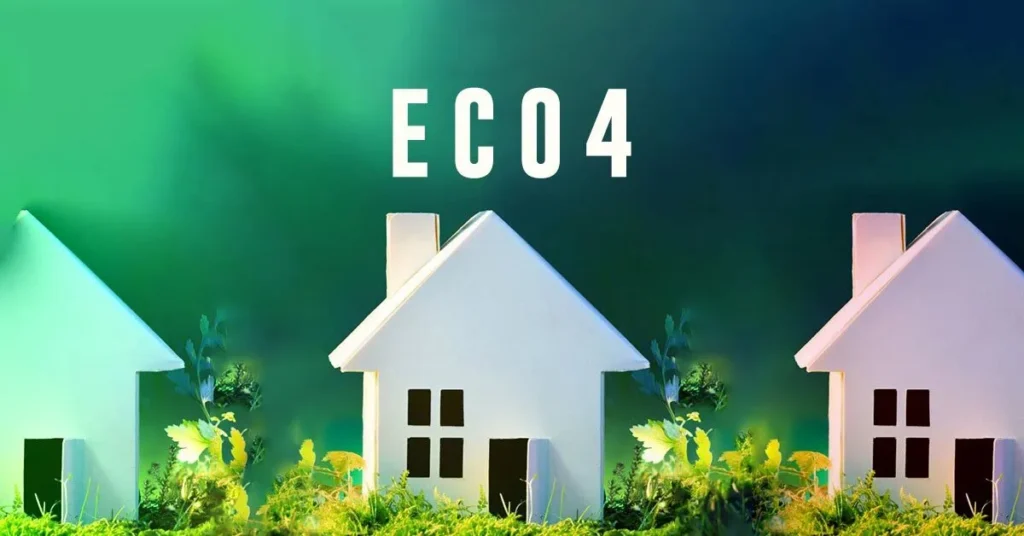The UK’s ECO4 Scheme is one of the most impactful government initiatives for helping households cut energy costs while making homes warmer, greener, and more energy-efficient. If you’ve been struggling with high heating bills or living in a poorly insulated home, this scheme could be your ticket to free or heavily subsidised upgrades such as new boilers, insulation, and renewable heating systems.
In this guide, we’ll cover everything you need to know about qualifying for the ECO4 Scheme in 2025, including:
- Who is eligible
- What energy-saving upgrades you can get
- Step-by-step application process
- Documents you’ll need
- Common mistakes to avoid
- How to boost your chances of approval
1. What is the ECO4 Scheme?
The Energy Company Obligation (ECO4) is the fourth phase of the UK government’s energy efficiency programme. It requires large energy suppliers to fund improvements for households that:
- Are on a low income
- Receive qualifying benefits
- Live in homes with poor energy efficiency ratings
Launched in April 2022 and running until March 2026, ECO4 focuses on making homes cheaper to heat and more environmentally friendly.
2. Benefits of the ECO4 Scheme
Applying for ECO4 can give you access to completely free or heavily subsidised energy-saving upgrades.
Possible improvements include:
- Free Boiler Replacement – Swap old, inefficient boilers for new A-rated models.
- Home Insulation – Loft insulation, cavity wall insulation, underfloor insulation.
- Air Source Heat Pumps – A renewable heating solution to replace gas boilers.
- Solar Panels – Reduce electricity bills and carbon emissions.
- Heating Controls – Smart thermostats and TRVs for better temperature management.
💡 Fact: According to the UK Government, a well-insulated home can save the average household £400–£650 annually on energy bills.
3. Who is Eligible for the ECO4 Scheme?
ECO4 is means-tested, meaning not everyone will qualify. You may be eligible if:
A. You Receive Certain Benefits
You qualify automatically if you or someone in your household receives:
- Universal Credit
- Pension Credit (Guarantee Credit or Savings Credit)
- Income Support
- Income-based Jobseeker’s Allowance (JSA)
- Income-related Employment and Support Allowance (ESA)
- Child Tax Credit
- Working Tax Credit
- Housing Benefit
B. Your Home Has a Low Energy Efficiency Rating
ECO4 mainly targets properties with an Energy Performance Certificate (EPC) rating of D, E, F, or G.
C. You Are in a Low-Income Household
If you don’t receive benefits but have a combined household income of £31,000 or less, you may still qualify through the LA Flex (Local Authority Flexible Eligibility) route.
4. Step-by-Step Guide to Qualifying for ECO4
Here’s exactly what you need to do to apply successfully:
Step 1: Check Your Eligibility
Use an online ECO4 eligibility checker or contact an ECO4 provider to see if you meet the criteria.
📌 Tip: Even if you’re unsure, apply anyway — many people discover they qualify under LA Flex.
Step 2: Get an EPC Assessment
If you don’t have an EPC, you’ll need an assessor to check your home’s current energy efficiency rating.
Step 3: Gather Your Documents
Commonly required:
- Proof of benefits (award letters)
- Proof of income (bank statements, payslips)
- Photo ID (passport or driving licence)
- Energy bills (last 3 months)
Step 4: Contact an Approved ECO4 Installer
Only government-approved contractors can carry out the work.
Step 5: Home Survey
A free home survey will determine which upgrades you qualify for.
Step 6: Installation
If approved, installations are typically completed within 2–6 weeks.
Step 7: Enjoy the Benefits
Lower bills, warmer home, reduced carbon footprint.
5. How to Boost Your Chances of Approval
- Apply early — funding is limited.
- Ensure your documents are complete.
- Use an installer with ECO4 experience.
- Consider bundling multiple upgrades (e.g., boiler + insulation).
6. Common Mistakes to Avoid
- Not applying because you “think” you won’t qualify — many people are eligible without realising.
- Choosing unapproved installers — work won’t be funded.
- Delaying your application — funds can run out before March 2026
